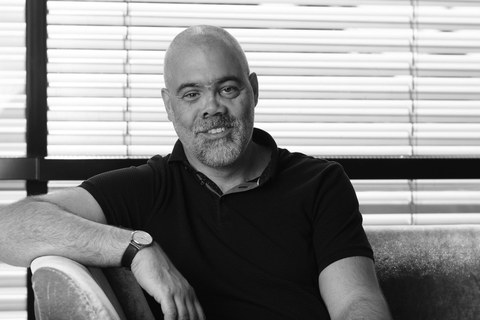Oct 09, 2025
The Scientific Community in Dresden Mourns the Loss of Professor Jochen Guck

Prof. Jochen Guck (1973-2025)
It is with deep sorrow that we share the news that Professor Jochen Guck passed away on October 3 after a serious illness. Jochen Guck was the first Alexander von Humboldt Professor at TU Dresden. Appointed in 2012 as Chair of Cellular Machines, he served as deputy and later executive director of Biotechnology Center (BIOTEC) from 2014 to 2018, before becoming director at the Max Planck Institute for the Science of Light (MPL) in Erlangen. The entire Dresden scientific community mourns the loss of a globally recognized pioneer in the field of cell mechanics.
Born in Schweinfurt in 1973, Jochen Guck studied physics in Würzburg and earned his doctorate from the University of Texas at Austin. After leading a research group at the University of Leipzig, he moved to the Cavendish Laboratory at the University of Cambridge in 2007, where he worked as a lecturer and later as a reader. In 2012, he joined the Biotechnology Center (BIOTEC) of the TU Dresden. Since 2018, he had served as a director at Max Planck Institute for the Science of Light (MPL) in Erlangen and headed a Cell Physics division at Max-Planck-Zentrum für Physik und Medizin (MPZPM). From 2020, he was also a Professor of Biological Optomechanics at Friedrich-Alexander-Universität Erlangen-Nürnberg and in the Faculty of Medicine since 2024. After moving to Erlangen, he remained honorary Professor of TU Dresden.
Leaving His Mark in Dresden
Jochen Guck was a scientist who truly embodied the spirit of collaboration. He had an exceptional ability to bring people together across disciplines, both within the TU Dresden and across the DRESDEN-concept institutions. As a director of the BIOTEC, he was not afraid to take courageous but necessary decisions that set a clear course for the institute’s future. His vision played a key role in shaping the Center for Molecular and Cellular Bioengineering (CMCB), and in laying the foundation for the Cluster of Excellence Physics of Life.
The Dresden community will remember him not only for his scientific excellence but for the kind of person he was: warm, humorous, principled, and wise. To students, he will remain in memory as an inspiring and enthusiastic teacher. He was a generous mentor, encouraging and supporting many throughout their careers, and a role model who exemplified strength, integrity, and overcoming the adversities.
As the first Alexander von Humboldt Professor at TU Dresden, Jochen Guck helped pave the way for outstanding international scientists who followed, leaving a lasting mark on the university’s research landscape.
Using Physics To Detect Diseases
With his interdisciplinary team, Jochen Guck pursued the mission of driving a paradigm shift in biology by shifting the focus from molecular biochemistry to the observation of emergent physical phenomena at the cellular level. Using novel physical methods, he researched the specific physical properties of cells and tissues that enable them to perform their biological functions.
For example, the real-time deformability cytometry (RT-DC) he developed enables thousands of cells in a drop of blood to be recorded and evaluated within a few seconds. His novel applications in Brillouin microscopy deepened the fundamental understanding of cell mechanical processes. The aim of his work was to make mechanobiology usable as a diagnostic and therapeutic tool in medicine. Bridging basic research and application, he initiated the founding of several successful companies, including Zellmechanik Dresden, to translate discoveries into practical tools for clinical research and healthcare.
A Life of Scientific Excellence
Jochen Guck has been honored with some of the most prestigious scientific awards in recognition of his outstanding contributions at the interface of physics, biology, and medicine. In 2024, he received the Greve Prize of the Leopoldina, one of Germany’s highest honors for excellent basic research, for his groundbreaking research on the role of mechanical forces in cells and tissues. He had previously been awarded the Wilhelm Ostwald Medal by the Saxon Academy of Sciences in recognition of his fundamental work on the physics of living matter and the establishing of mechanobiology as an independent field of research. In 2012, he received the Alexander von Humboldt Professorship, Germany’s most highly endowed international research award. In 2008, the U.S. National Academy of Sciences honored him with the Cozzarelli Award for his pioneering work on the examination of the optical properties of the retina.
The CMCB, the EXC PoL, the MPI-CBG, and the scientific community of Dresden would like to express the deepest sympathies to his family, friends, and colleagues.
We invite all of those whose life or work were touched by Jochen Guck to share memories and condolences in the digital book of condolences hosted by the Max Planck Institute for the Science of Light (MPL).
Source: MPL
